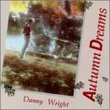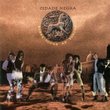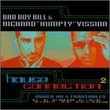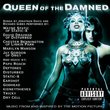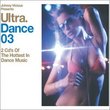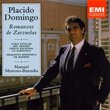| All Artists: Ottorino Respighi, Carlo Gesualdo, Leopold Godowsky, Maurice Ravel, Claude Debussy, Franz Liszt, Frederic Chopin, Camille Saint-Saens, Federico Mompou, Francesco Libetta Title: Presenting Francesco Libetta Members Wishing: 0 Total Copies: 0 Label: Video Artists Int'l Release Date: 3/13/2001 Genres: Dance & Electronic, Special Interest, Classical Styles: Exercise, Chamber Music, Forms & Genres, Short Forms, Sonatas, Historical Periods, Classical (c.1770-1830) Number of Discs: 1 SwapaCD Credits: 1 UPC: 089948119623 |
Search - Ottorino Respighi, Carlo Gesualdo, Leopold Godowsky :: Presenting Francesco Libetta
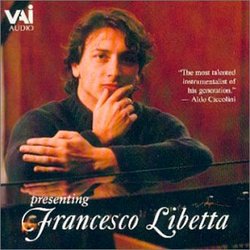 | Ottorino Respighi, Carlo Gesualdo, Leopold Godowsky Presenting Francesco Libetta Genres: Dance & Electronic, Special Interest, Classical
|
Larger Image |
CD DetailsSimilarly Requested CDs
|
CD ReviewsUncomfortable Readings Only Hint at Performers Skill John Bradley | Tacoma, WA USA | 07/30/2001 (4 out of 5 stars) "There are several problemns with this particular item. Firstly the sound is excessively boney on some playback devices,something that breaks up the sweep of phrases and makes even the most miniscule inconsistancy sound enormous, fortes are also a bit clangy. The artist seems to be pulling his punches which leads to awkward hesitations and disjointed readings. Also half of the disc showcases the weakest points of libettas musical personality. If you have a way to turn up the mid range or have a processor on your playback device which will make the sound less sharp and more reverberent much of this recital is excellent. Also the piano was voiced in a way I feel was rather monochrome. I was expecting much more from libetta as I had heard much pirate material which is honestly some of the more sensational playing I have ever heard. This recital though riddled with nervous performances is still worth getting however. The godowsky Badinage and the Saint-Saens numbers are played in a jaw dropping manner none-the-less. The badinage clocking in in about a minute and a quarter! And the Etude in the form of a Waltz eclipsing even Cziffra!" As Mr. Schonberg says.. Gianluca Panareso | Paris, FRANC | 01/02/2002 (5 out of 5 stars) "An Italian pianist, born in 1968, Libetta makes a formidable impression in this recording of a concert given in Miami, January 27, 2000. He is a super-virtuoso who does not dowse you with pail-full of notes. No technical showmanship here: with his kind of technique Libetta does not need to try to make an impression. He takes his wonderful fingers for granted (he makes the difficult Ravel sound easy), and the listener is swept along. He has put together an interesting program, from Gesualdo to Mompou - mostly arrangements - and he is the master of every period or style represented. Seems that a new generation of virtuosos is appearing: a generation that accepts virtuosity not as tightrope walking but as a species of literalism, where musical meaning is more important that knockÕ-Ôem dead fingerwork. Libetta is the best of this modern style. He obviously can play, most convincingly, everything he wants, and he has an acute feeling for style: but he never makes a big thing of his technical expertise. Melodic lines are graceful shaped: the pieces sing. I have no hesitation calling him an important pianist.Harold Schonberg on AMERICAN RECORD GUIDE, June 2001"
|

 Track Listings (14) - Disc #1
Track Listings (14) - Disc #1